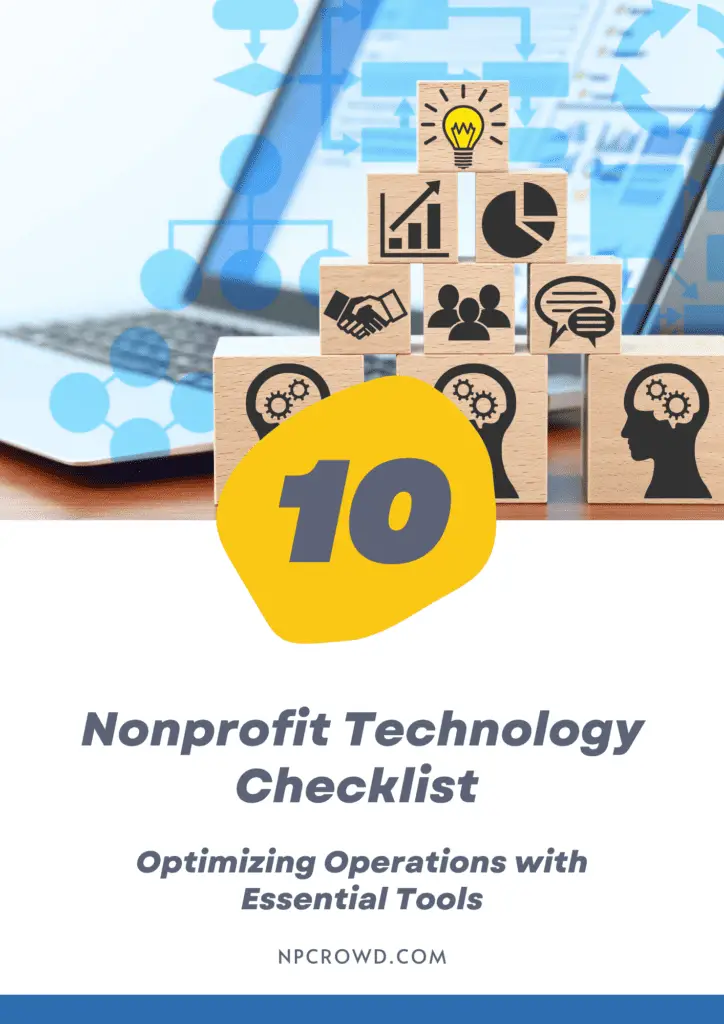9 Reasons To Work For A Nonprofit | What You Missed
Disclaimer: This post may contain affiliate links. These links, if used and purchases made, we may earn a small commission. These affiliate programs do not impact the recommendations we make or the resources we refer you to. Our focus is on providing you the best resources for your nonprofit journey.
Many people think of nonprofits as the “easy way out.” They believe that they don’t need to put in much effort since they are not going for profit. This couldn’t be any further from the truth! Nonprofits need just as much dedication, skills, and hard work as businesses do.When people working on staff at a nonprofit see their colleagues come into work every day with a passion for the mission, it inspires them to do the same.
In this article, we will talk about nine reasons why you should consider working for a nonprofit organization.
1. The nonprofit sector is growing
Nonprofits are not going anywhere. The nonprofit sector is continuing to grow at a rate of 11% annually, which will keep nonprofits alive for many years in the future. This means that there’s plenty of room and opportunity if you want to work with nonprofits extensively or make it your part-time career.
Note: According to the US Bureau of Labor Statistics, Covid impacted the nonprofit sector, losing 7.4% of its jobs in 2020. Time will show us how the recovery of these jobs goes.
While it is true that the failure rate of nonprofits is around 50% within the first five years, there is much to be learned from these failures, and many nonprofits are succeeding.
What’s more, changes in the U.S. and global economy mean that there will be a need for nonprofits to help those who are struggling in low-income communities.
There is a lot of potential in working for nonprofits, and it’s not going anywhere.
2. Nonprofits are a great place to work
Working for a nonprofit is filled with a mission to do good, great people, and work you will feel connected to.
Nonprofits are a great place to work because the people around you have a passion for the work. It is incredibly motivating when everyone is working toward the same goal!
The work you do in a nonprofit actually matters. You will have a chance to make an impact and do good in the world with your work. That is meaningful not just for today but for future generations. After all, why not make a lasting impact.
3. You will be making a difference
The missions and goals of nonprofits are incredibly varied.
Every nonprofit is different, but they all share one thing in common: a mission to do something good for people, animals, or the environment. At their core, this is what unites them as an institution. The variety of missions ensures that there is always enough work to go around!
Knowing you can make a difference every day sounds pretty great.
Most nonprofits are also committed to hiring diverse employees. The synergy of different perspectives, paradigms, cultures, and viewpoints may create something better than could be done in a homogenous work environment.
4. Your skills will grow
Nonprofits tend to run lean. This is both a challenge and an opportunity. You’ll have to get creative and stretch your skills, but the payoff is that you will grow more than if you were working a traditional nine-to-five.
Opportunities abound to take on a project, learn new skills and hone existing skills in an environment that is supportive and receptive. While you may work in a silo in a corporation, here, you’ll be able to experience varying parts of operating a nonprofit, which can increase your employability later in life.
In addition to this, many nonprofits provide opportunities for advancement through learning new skills or acquiring certifications on top of an already in-depth skill set.
Nonprofits are often looking for someone who has the potential to move up into leadership positions. Most organizations believe in promoting from within when possible. That’s a win-win proposition.
5. You’ll have more flexibility
The work environment for nonprofits is often much more flexible than what you would find in the business world.
This can be especially true with remote positions. You may have to travel occasionally, but your boss won’t expect you to regularly put in ten-hour days. Some people even flex when in the day they work so they can spend time with family when it’s needed most!
Nonprofits are also very open about giving employees flexibility around office dress and work schedules too. No one way works best here because everyone has different needs and preferences.
It is important always to look, communicate, and operate professionally. However, you may find that a nice pair of jeans and a polo shirt are the perfect professional dress for some nonprofits.
6. There’s less competition for jobs
Nonprofits often have a hard time attracting qualified candidates. They are competing with the private sector who may offer higher salaries and better benefits.
Nonprofit executive directors compete for talent by emphasizing their mission, vision, or purpose and highlighting values such as collaboration, community engagement, and equity to attract high-quality employees willing to work on behalf of underserved populations in society.
With this being said, it is more difficult to find someone with the skillset you need, which leads us to number seven…
7. It’s easier to find employment with nonprofits than the private sector
In the private sector, there are more jobs than workers. This is not true of nonprofits.
The nonprofit workforce has shrunk from 18 percent in 1990 to 12.41 percent today. With a smaller pool of applicants competing for fewer positions, it’s easier for applicants to secure an interview or job offer at a nonprofit organization than if they were looking on sites like LinkedIn or Monster.com, where competition is fierce!
Now, don’t let that fool you. The vetting for professional roles is not lacking, and nonprofits should hire only the best candidates. The days of a warm body being accepted into a nonprofit are over. You need to have skills, heart, and be a team player to get on board.
8. You can make your own hours
While this is not true of every role or every nonprofit, many offer more options for an employee to work hours that they determine within certain guidelines.
Some nonprofits offer flexible hours (flex-time) that may work well with childcare schedules or other outside commitments like school, etc. Imagine being able to keep a professional salaried role while still being able to attend special events, field trips, and other school-related things your children may have
If you want more control and freedom over what time of day you work, nonprofit jobs are worth considering.
9. You’ll get paid vacation time and sick days
This perk is one you won’t leave behind when working for a nonprofit in a salaried role.
Nonprofits often offer five to ten days of paid vacation time and three to five sick days per year—some over as much as twenty days of PTO.
Again, this varies by position, but it’s a pretty good deal considering you have access to some much-needed time off for yourself or your loved ones without worrying about whether or not someone will cover for you at work.
Final Thoughts
Think back on why you first started thinking about doing nonprofit work – what were those reasons? And how do they compare with the nine new points above?
It may be that there are even more benefits waiting out there for people just like you! So if we’re looking into joining the nonprofit world, let’s make sure it’s because we love doing something good and want to connect with the mission. To balance your thoughts, check out these 11 reasons why you should not work for a nonprofit.
Let’s start with building on your personal foundation by looking for a nonprofit that has something to offer you right off the bat and see where it takes you from there!







